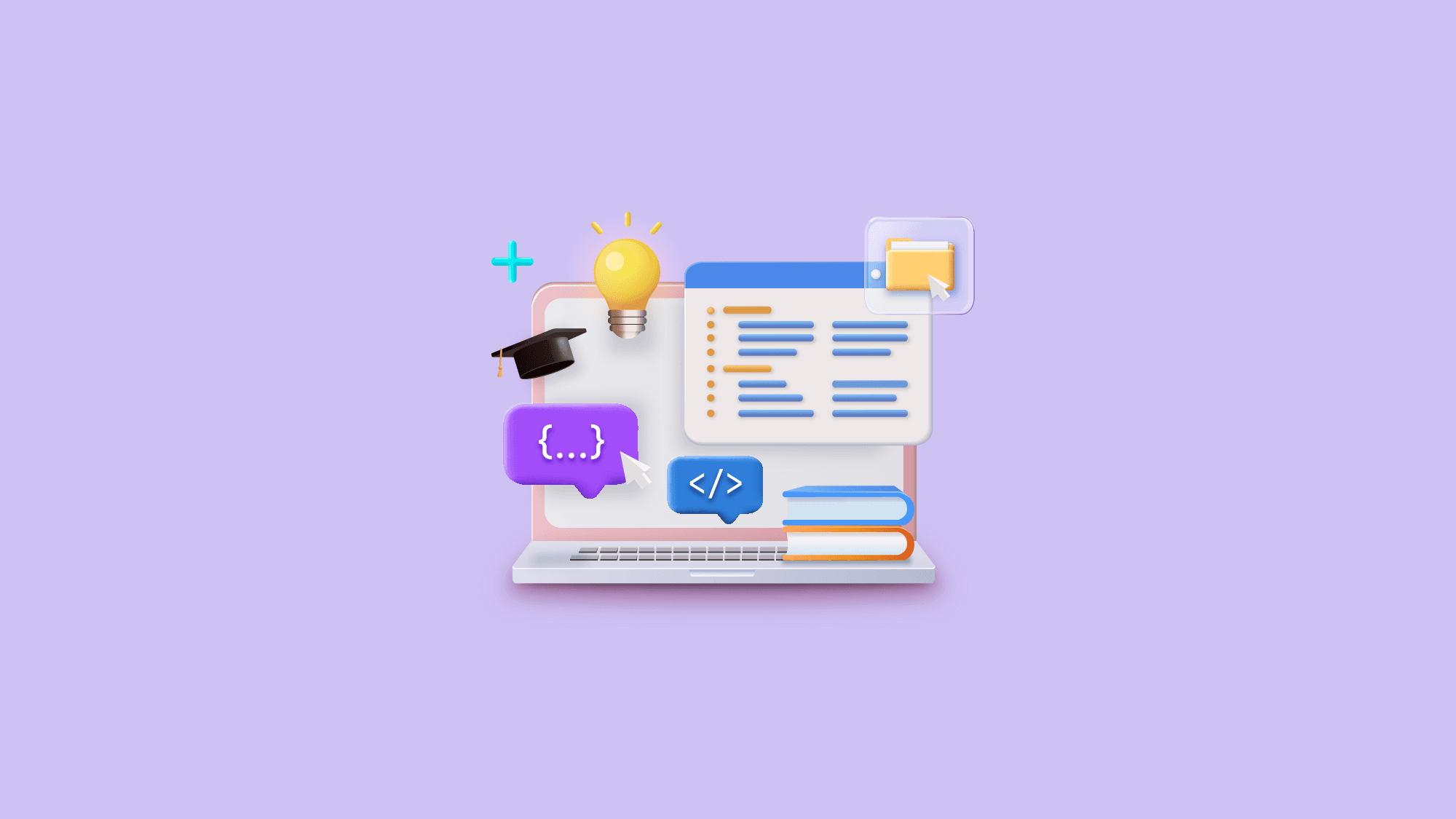Attention HRDs: 4 Ways to Plan Corporate Training
Elice
29/02/2024
Today’s business environment is constantly changing. Corporate training, also known as human resource development (HRD) training, plays a key role in this process, helping employees gain the knowledge and skills they need. In this content, we’ll take a closer look at not only the need for HRD, but also the different types of corporate training, how to run them effectively, and how to plan them.
Discover the 2024 digital transformation outlook
The need for corporate training
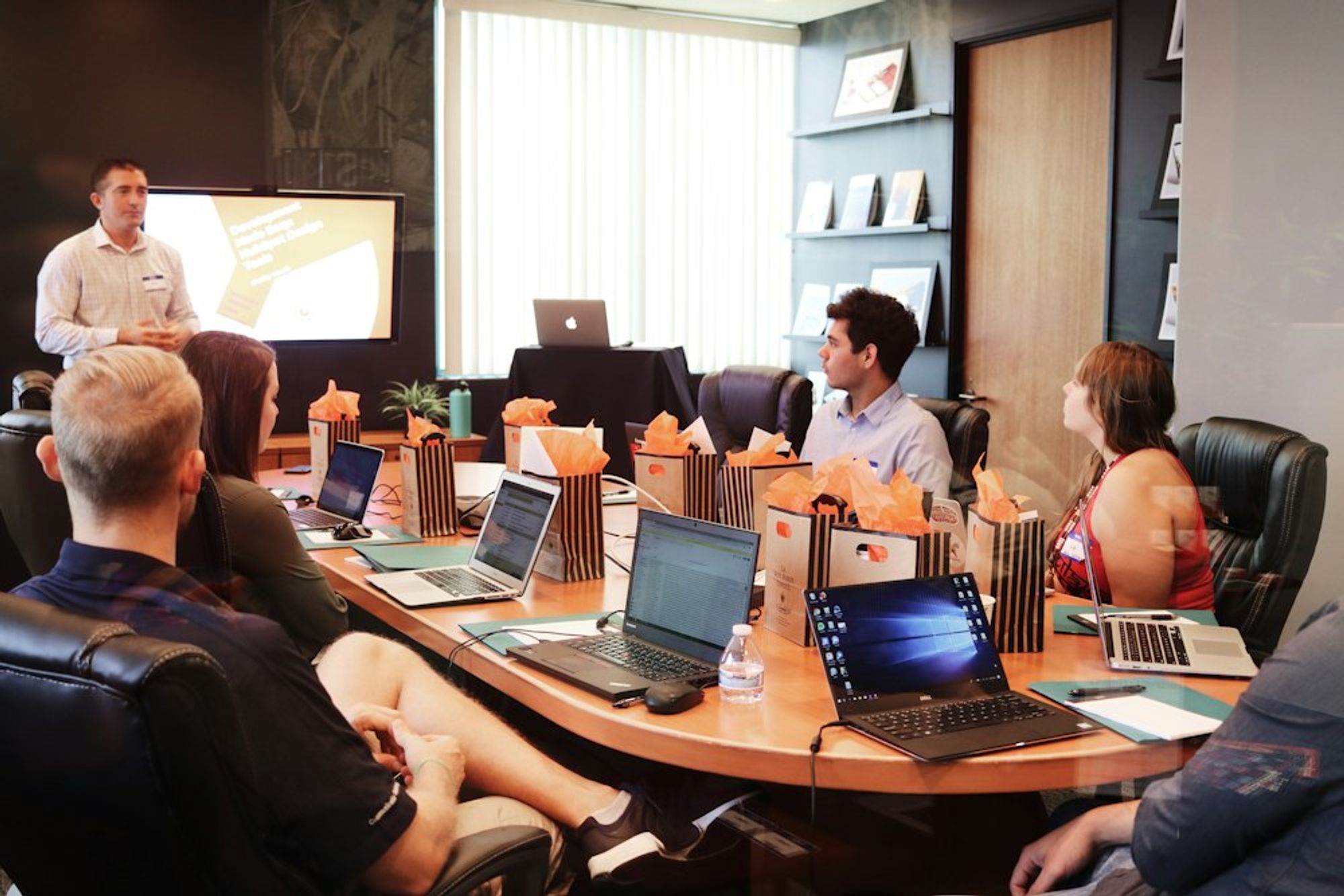
Corporate training is essential for organizational growth and development. A recent study of 327 organizations found that HRD training expenditures have a significant impact on job satisfaction, turnover, and basic job skills, and that there is a direct link between training and performance.
In other words, HRD training goes beyond just empowering employees to create a positive work environment within an organization and plays a key role in increasing employee satisfaction and loyalty. This is an important factor in reducing organizational turnover in the long run, so a well-designed training plan can significantly improve a company’s competitiveness. To reap the benefits of corporate training, you need a strategic training plan.
Types of corporate training

HRD corporate training is available in a variety of forms, depending on the audience and purpose, including.
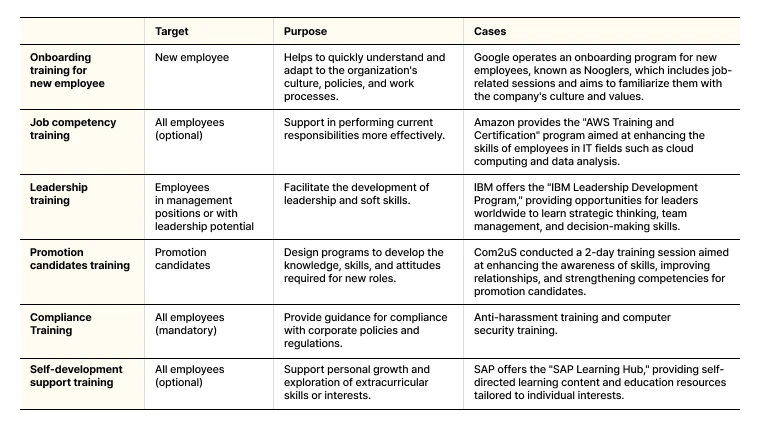
How to run corporate training

This corporate training can take many forms. Here are four common approaches.
Offsite or group training
Offsite or in-person training is taught by a professional instructor at an education and training facility. It takes place outside of the workplace, at a corporate training center or lecture hall, where learners interact face-to-face with an expert trainer. Training is often focused on broad, universal topics, such as the importance of workplace relationships and industry trends, rather than job-specific training.
In-house training
In-house training is a way to deliver needed training within the workplace, often by a direct supervisor or internal expert. This approach allows you to design customized training programs to meet your organization’s specific needs and fosters collaboration and knowledge sharing among employees.
Online training
Online training is a way of conducting face-to-face training using eLearning, mLearning, etc. It offers convenience and flexibility to learners and has the advantage of self-directed learning due to the freedom of instruction. It also has the advantage of not having to set aside time for training and can be taken at your convenience.
Blended learning
Blended learning is the practice of having students study related books or online training before or after in-person training. It effectively combines online and in-person learning to enable continuous learning and maximize training effectiveness by providing customized training that is tailored to the learner’s characteristics.
How to plan corporate training
1. Rich experience and thorough analysis for corporate training planning

First, successful corporate training planning requires a wealth of experience and thorough analysis. To plan a training program that aligns with your vision and goals, you need to conduct thorough research, including market analysis and employee needs analysis, especially in a complex and rapidly changing environment. A specialized corporate training platform can help you implement richer, more strategic training and contribute effectively to achieving your goals.
2. Set specific training goals and objectives

The next step is to clearly define specific training objectives and goals. Clarifying your objectives helps to provide direction for the training and clearly communicate the expected outcomes of the training.
By setting specific goals, you can increase the effectiveness of your training program and engage participants. It keeps participants focused on a clear goal and gives them a better understanding of how the training will be applied in the real world. When the objectives are detailed, everyone in the training is on the same page, creating an effective learning environment.
3. Designing hands-on training
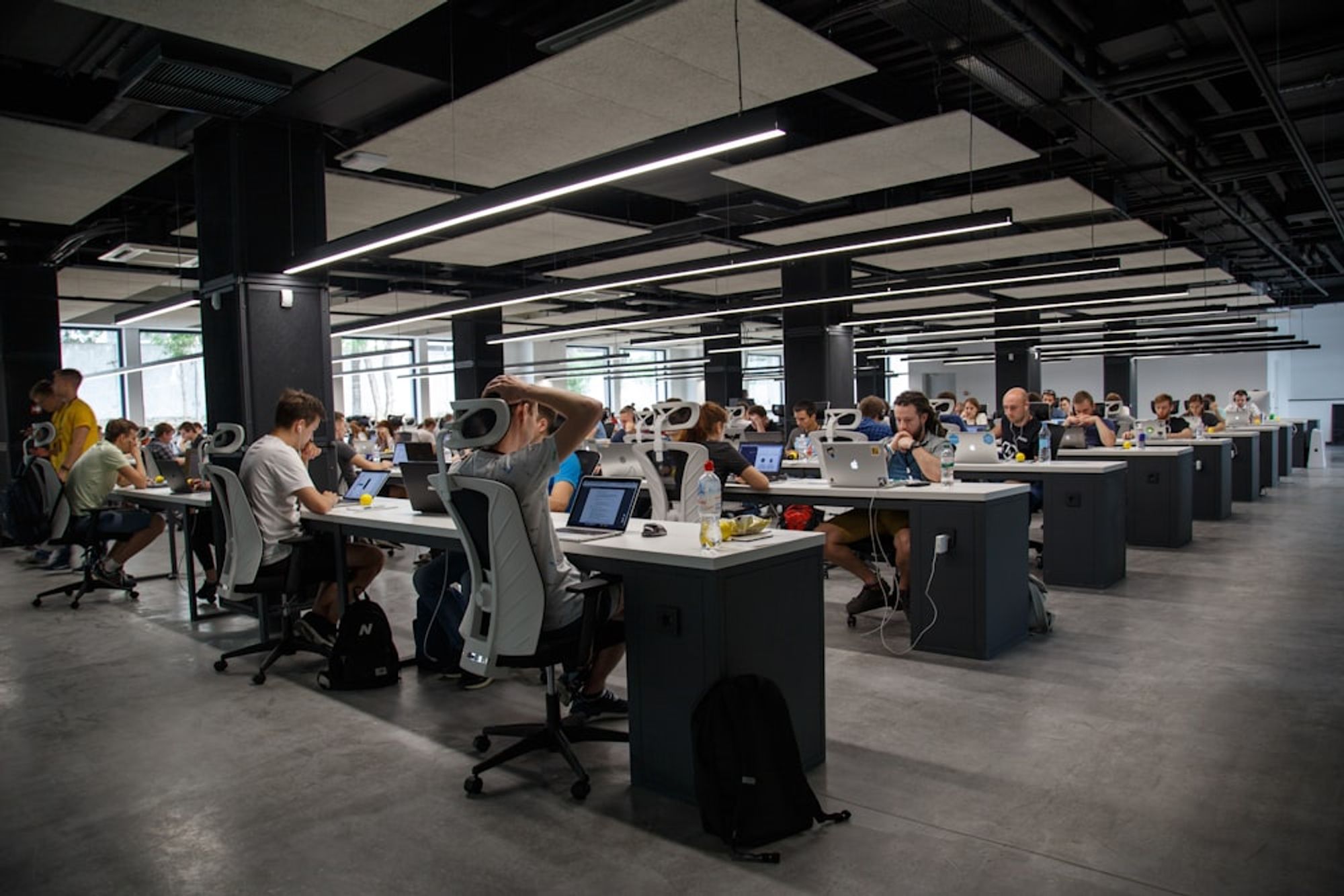
Once you’ve established the purpose and goals of your training plan, it’s important to optimize the training for your enterprise environment. By designing training content that focuses on knowledge and skills that can be directly applied in the workplace, you can create a more realistic and practical training experience than theory-driven training. This approach helps participants apply what they’ve learned to their real-world work and contributes to real workplace empowerment.
4. Create personalized learning experiences

Finally, personalized training programs consider the individual needs and learning styles of your employees. By identifying each employee’s strengths, weaknesses, and learning preferences and choosing content and methods accordingly, they’ll enjoy a more personalized learning experience. And with customized training, they’ll be able to bring out the best in themselves and contribute to improved performance across the organization.
Corporate training examples
Companies already run a variety of HRD training programs, and here are two of the many HRD examples we’ve seen at Elice.
LG Chem’s hands-on DX competency training
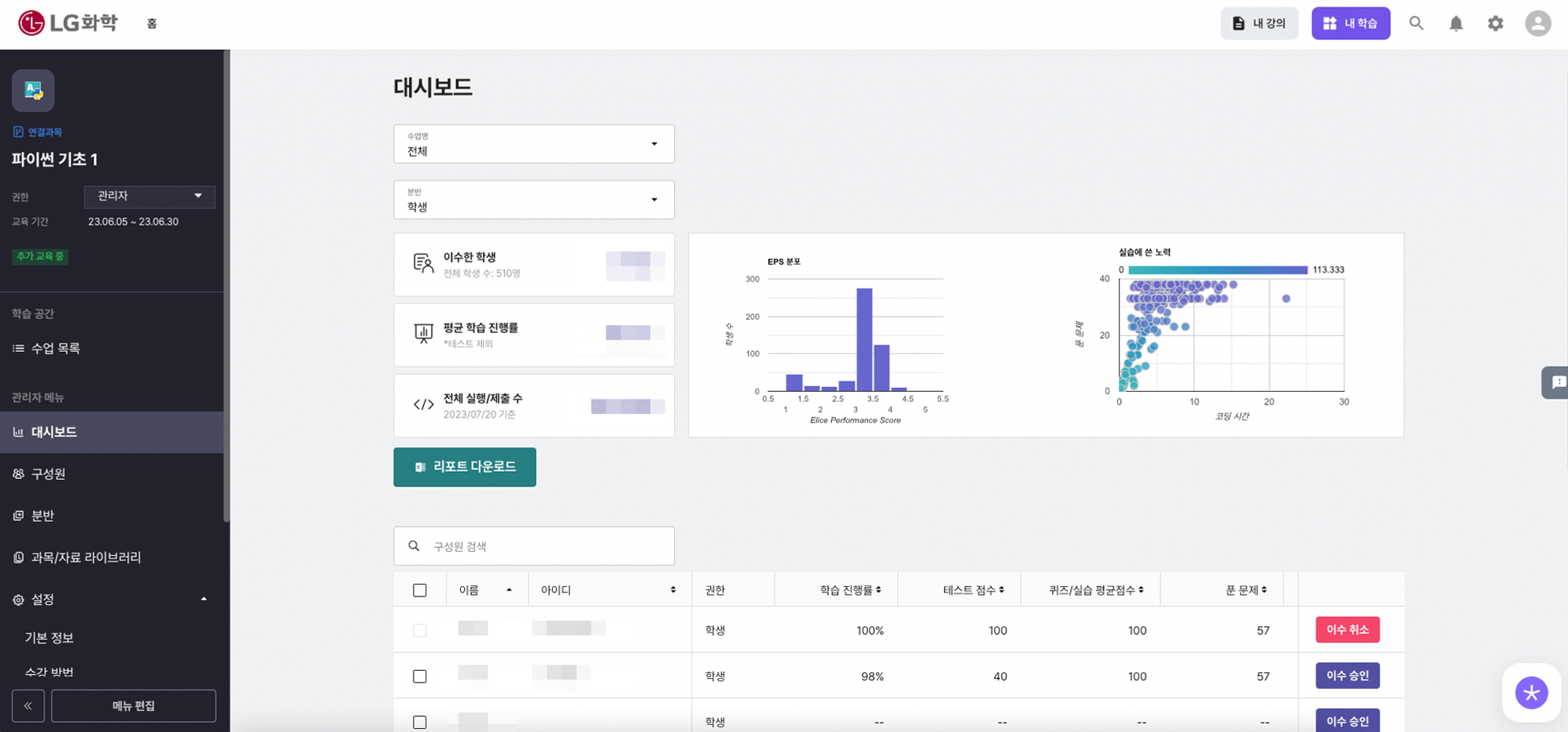
Since 2020, LG Chem has been leveraging the corporate training platform Elice to enhance employees’ DX comprehension. Recognizing the diversity in digital proficiency among employees, the training program offers a customizable, step-by-step curriculum that caters to individual learning paths. The program culminates in project-based learning (PBL) training, engaging employees in projects that mimic real-world scenarios and teaching practical application in the workplace. This specialized approach to DX training, tailored to LG Chem’s unique corporate environment, has not only facilitated the discovery of AI talent but has also invigorated the company’s DX culture. Furthermore, it has significantly boosted learner engagement and practical skill development.
Learn more about LG Chem’s corporate training story
Ottogi’s proof-of-concept training empowers internal data decision-making
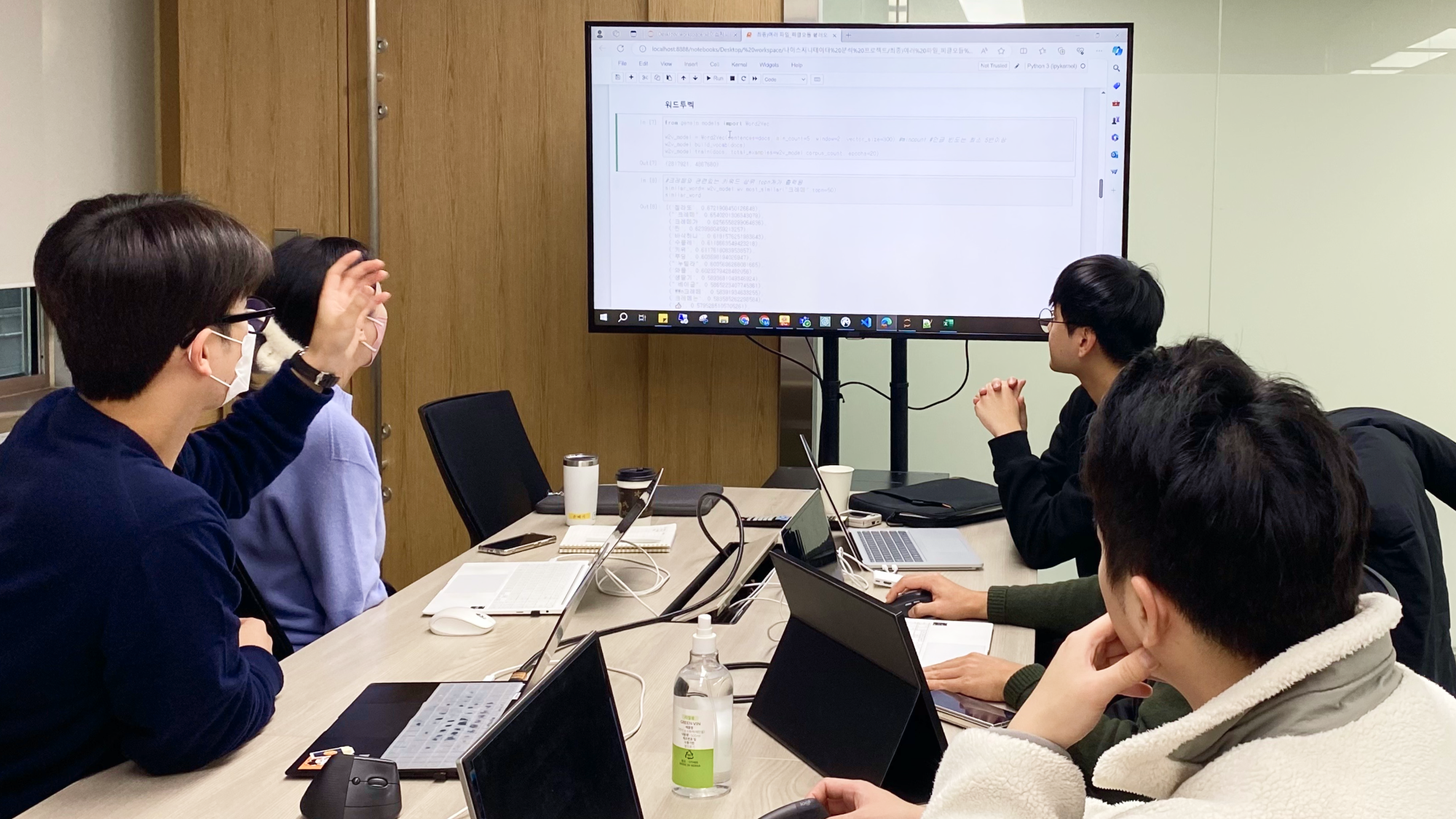
To strengthen decision-making capabilities within the organization by effectively utilizing internal data, Ottogi held the ‘PoC Project Training’, an internal data utilization training. The training was hands-on, such as crawling Naver reviews based on actual internal data and analyzing trend data using analytics tools. Participants gained experience in deriving insights, such as planning food promotions through analyzing actual sales data, which helped them learn how to apply internal data to real-world business decisions and improve their capabilities.
Learn more about Ottawa’s corporate training story
So far, we’ve talked about corporate training and training planning to grow your organization. HRD is more than just imparting knowledge, it’s providing opportunities for employees to improve their skills and grow. Through systematic corporate training, we hope you can create a corporate culture where your company and employees grow together.
Elice Corporate Training helps companies and employees grow together Contact Us
*This content is a work protected by copyright law and is copyrighted by Elice.
*The content is prohibited from secondary processing and commercial use without prior consent.
- #DX
- #Learning





